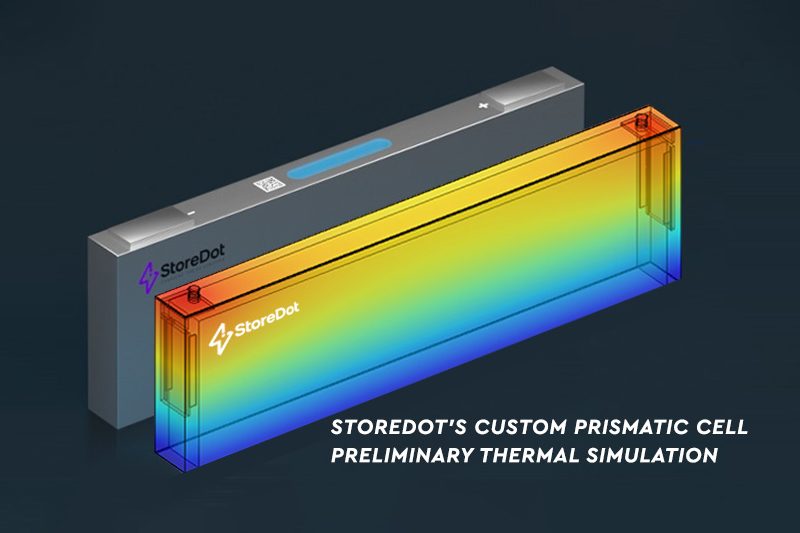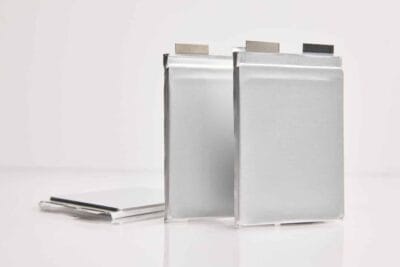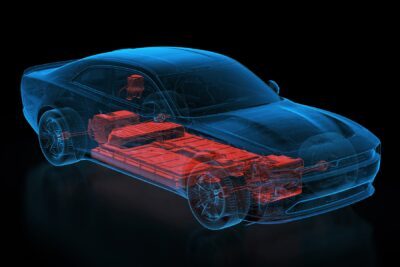StoreDot transfers its XFC battery technology to prismatic cells
With the successful production of the first prismatic cells, StoreDot has announced an important step towards the commercialisation of its fast-charging silicon-dominated battery cells. The prismatic cell type offers additional mechanical protection and performance advantages over pouch cells, which is why many electric car manufacturers favour it.
The transition from pouch to prismatic cells and the integration of silicon-based chemistry with fast-charging capability into prismatic packaging presents several technical challenges and manufacturing complexities that StoreDot has overcome. This demonstrates that XFC technology can be adapted to different cell formats.
The XFC cells are known to be characterised by their extreme fast-charging capability, among other things – in May 2022, StoreDot demonstrated a charging process to 86 per cent in ten minutes, and a few months later, proof of a durability of 1,000 fast-charging cycles was reported for production-ready cells. A fortnight ago, the Israeli battery developer also presented a cell-to-pack battery concept.
In January 2023, StoreDot also announced that its battery cells were being tested under real-life conditions by 15 car brands from Europe, Asia and the USA. As reported, StoreDot cells will also be produced on these three continents in existing and future battery factories of automotive partners. StoreDot itself is not planning its own production facilities.
“Successfully producing and passing initial tests of prismatic cells represents a huge leap towards delivering our XFC batteries in a format that can easily integrate into mass-produced EVs,” said Dr Doron Myersdorf, CEO StoreDot, adding: “By mastering prismatic XFC cell design, we are now able to offer our OEM partners batteries in the format they need with the game-changing charging speed of our XFC technology – 100 miles of range in 5 minutes of charging. This milestone moves us decisively closer to mass adoption of affordable, long-range EVs capable of extreme fast charging – creating an experience similar to fueling an internal combustion engine.”
StoreDot stated that the company will continue to optimise the design to achieve a charging capacity of up to 170 Ah and a volumetric energy density of over 700 Wh/l. Further, StoreDot has stated its next target as reaching a 100-mile charge in 4 minutes by 2026, and to be able of charging the same amount of energy in 3 minutes by 2028.





0 Comments